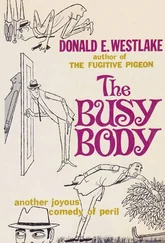Donald Westlake - Two Much!
Здесь есть возможность читать онлайн «Donald Westlake - Two Much!» весь текст электронной книги совершенно бесплатно (целиком полную версию без сокращений). В некоторых случаях можно слушать аудио, скачать через торрент в формате fb2 и присутствует краткое содержание. Город: Philadelphia, Год выпуска: 1975, ISBN: 1975, Издательство: M. Evans, Жанр: Юмористические книги, на английском языке. Описание произведения, (предисловие) а так же отзывы посетителей доступны на портале библиотеки ЛибКат.
- Название:Two Much!
- Автор:
- Издательство:M. Evans
- Жанр:
- Год:1975
- Город:Philadelphia
- ISBN:978-0-87131-168-9
- Рейтинг книги:3 / 5. Голосов: 1
-
Избранное:Добавить в избранное
- Отзывы:
-
Ваша оценка:
- 60
- 1
- 2
- 3
- 4
- 5
Two Much!: краткое содержание, описание и аннотация
Предлагаем к чтению аннотацию, описание, краткое содержание или предисловие (зависит от того, что написал сам автор книги «Two Much!»). Если вы не нашли необходимую информацию о книге — напишите в комментариях, мы постараемся отыскать её.
Two Much! — читать онлайн бесплатно полную книгу (весь текст) целиком
Ниже представлен текст книги, разбитый по страницам. Система сохранения места последней прочитанной страницы, позволяет с удобством читать онлайн бесплатно книгу «Two Much!», без необходимости каждый раз заново искать на чём Вы остановились. Поставьте закладку, и сможете в любой момент перейти на страницу, на которой закончили чтение.
Интервал:
Закладка:
He nodded, thinking it over. “That’s probably best,” he said. “You aren’t a witness or anything, are you?”
“I was in Manhattan with my bride while it was going on. I’m just an in-law. Or a relative, if you want to believe the twin brother story.”
“Then you’re probably right,” he said. “Sit tight, and wait to see what happens next.”
“And if something does happen, Ralph, can I come to you?”
“You know that, Art. How can you even ask? Aren’t we friends?”
“I was just thinking... under the circumstances...” And he began to dissolve again. “Ralph,” I said, leaning forward to pat his knee, to console him. “She’ll be back, Ralph.”
“She’s gone for good, Art.”
“Ralph, I’ll look for her.”
He gazed at me in bleary hope. “You will?”
“I’ll talk to her, if I can. I’ll do anything I can to help, Ralph.”
“Art, if you could— Art, I just—”
“We’ll help each other,” I suggested. “I’ll help you with Candy, and you’ll help me with this crazy twin brother thing.”
And we fell into one another’s arms.
53
The next four days were lived on tiptoe, but by God not a single egg got broken. The police seemed to have swallowed my Volpinex-as-murderer playlet, and lacking a denial from Volpinex himself there was nothing to jar their sweet certainty. Bart’s death certificate was as legitimate as the coroner’s office could make it; he had been such stuff as dreams are made on, and his little life was rounded with a sleep, as he rested, an unidentifiable mound of ashes, in a brass urn in the Kerner family vault, beside his bride.
The cat’s cradle of stories I’d told here and there held up very well, mostly because it was never really tested. No cop ever talked to Gloria or Ralph or Doris or Joe Gold, and why should they? My ex-wife Lydia was cooled out with the same coincidence gambit that had worked with Doris, and everybody else went on believing the various fantasies and half-truths I’d already delivered. With no arrests or other postmurder development, the news media lost interest in the BIZARRE SLAYING within two days, and that also helped.
Gloria continued to run Those Wonderful Folks, with no assistance from me other than erratic phone calls; I did not drop by my office, any more than I visited my former apartment. Ralph, based on the evidence of my few calls to him, continued to drink and mope and feel sorry for himself, with not the slightest thought for the outside world. As for Candy, the only loose end left to be tied, I had a story to tell her, of course, but she was unavailable to listen to it. She had dropped, as the saying goes, from the face of the earth, and could stay dropped forever for all of me.
Which left Liz. For a day or two she remained indignant and enraged with the altered contract, but by the weekend she had calmed down considerably and seemed prepared to accept the inevitable, saying to me, “What the hell, I kind of like you anyway. I could have done worse.”
“You have,” I told her. “Frequently. But that’s all over now.” And we went for another romp on her big bed.
54
On Sunday night, six days after the double murder, Liz said, “Let’s get away for a while.”
“Sure,” I said. The danger period was over, the official investigation having moved on to other concerns and unofficial curiosity having been generally appeased, so a vacation away from the scene of my broken-field-running exploit might be very restful indeed. Also, Liz had become increasingly docile and pleasant the last day or two, with none of that nastiness I had come to expect from her; removing her to a new setting might help turn this happier personality into a permanent improvement. “Where to?” I asked.
“Saint Croix,” she said. “We have a house there.”
Good God. “We do?” And what more wonders lay ahead, yet to be unwrapped?
“We’ll phone them in the morning to open it,” Liz said, “and we’ll fly down tomorrow afternoon.”
So I’d be going to the Caribbean after all; wherever he was, I hoped Volpinex was pleased. “Fine,” I said.
55
We had identical Air France bags, many-pocketed and pale blue. Mine had been Betty’s, but as Liz pointed out, “Why let it go to waste?”
Monday morning, while she phoned the servants in Saint Croix and the airline at Kennedy, I went back, possibly for the last time, to my little black office in the garment district, carrying my new blue bag. Gloria was typing away, and had the usual pile of outrageous mail and phone messages stacked up. “Forget all that,” I told her. “Remember that rabble of ungrateful illustrators that wanted to steal the company from me, couple of years ago?”
Gloria nodded. “In lieu of payment,” she said. “I always thought they were crazy, myself.”
“They had a lawyer,” I said. “Look him up in the file, prepare a letter for my signature, no date, saying, ‘I don’t ask to be insulted. Mine was a serious question.’ I’ll sign it.”
She frowned at me. “You do carry a grudge, don’t you?”
“Not exactly. This afternoon, call that lawyer and ask him if his company of turncoats is still interested in making a deal. If he says yes, ask him to forward the details of their proposition. When you get it, put a date on that response of mine and send it to him with all copies of his proposition. Any time he calls, I’m out of town but expected back shortly, and you don’t know where I can be reached.”
Gloria said, “You wouldn’t really quit, would you?”
“Life goes on.”
“And I go back to Met Life? That isn’t fair! I’ve given you the worst years of my life!”
“Don’t dramatize, Gloria,” I said, and went on to the inner office, where I collected my emergency cache of ten-dollar bills from behind the “Kiss me again” plaque, then turned my attention to the desk. Was there anything I wanted with me for an indefinite stay in the Caribbean?
A bottom drawer revealed an extra glasses case; startled, I stuffed it out of sight into the wastebasket. Bart’s glasses had been consumed with his body, and Art would never wear glasses again.
There were, however, some useful items: my passport, my birth certificate, my immunization record. And what was this on the desk top, this large manila envelope with its combination of pleasant and unpleasant associations?
Ah, yes: the thesis of Linda Ann Margolies. In all the activity of the last week or so, I hadn’t given the thing a thought. Now at last I opened it, and withdrew a sheaf of Xeroxed manuscript pages, plus a brief letter. The letter said:
Chief,
At last. I have the plans for the new naval torpedo, and Admiral Von Heffelwitz has the clap. For the glory of France!
Cherie
Enc: Stolen plans for naval torpedo.
Right. I slipped the stolen plans into the Air France bag, for later reading ’neath a tropical sun.
Gloria wouldn’t talk to me when I left.
56
Snoozed with champagne, Liz snoozed as we sailed above the Atlantic. Washington, D.C., was on the horizon to our right, if anybody cared; nobody cared, at least not up front here in first class. This half-empty 747 was taking us all to Puerto Rico, where Liz and I would switch to some smaller mud jumper for the hop over to St. Croix. For now, the majority of my fellow passengers, somnolent with lunchtime wine, were sagging in their seats and waiting for the movie.
I couldn’t quite sag, not all the way. We had no baggage other than our two Air France bags, now tucked companionably together beneath the seats in front of us, exactly where I would have preferred to tuck my feet. “I can’t stand waiting for luggage,” Liz had announced. “What do we need there anyway? A toothbrush and a bathing suit.” So I had to keep my legs bent.
Читать дальшеИнтервал:
Закладка:
Похожие книги на «Two Much!»
Представляем Вашему вниманию похожие книги на «Two Much!» списком для выбора. Мы отобрали схожую по названию и смыслу литературу в надежде предоставить читателям больше вариантов отыскать новые, интересные, ещё непрочитанные произведения.
Обсуждение, отзывы о книге «Two Much!» и просто собственные мнения читателей. Оставьте ваши комментарии, напишите, что Вы думаете о произведении, его смысле или главных героях. Укажите что конкретно понравилось, а что нет, и почему Вы так считаете.












